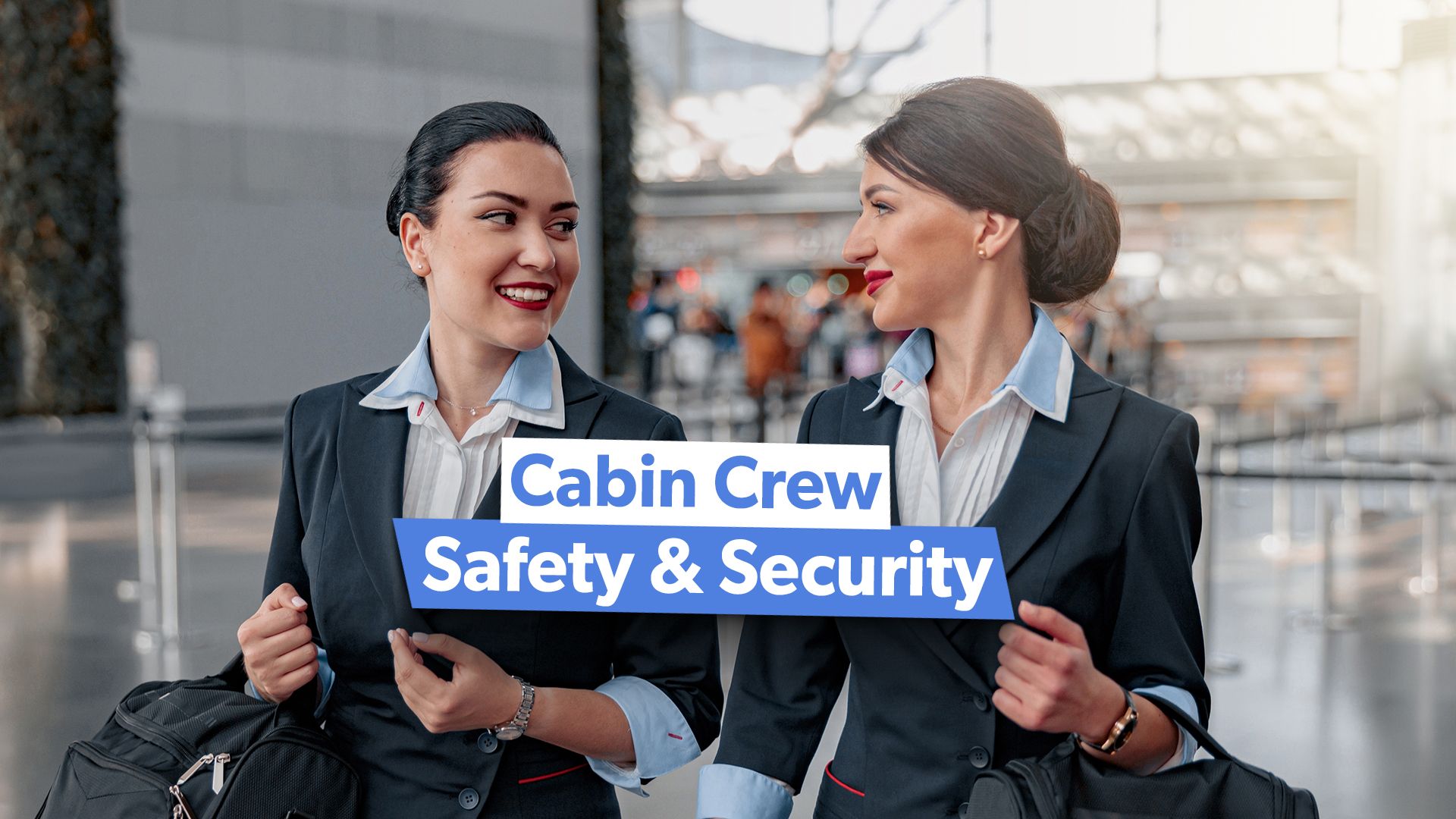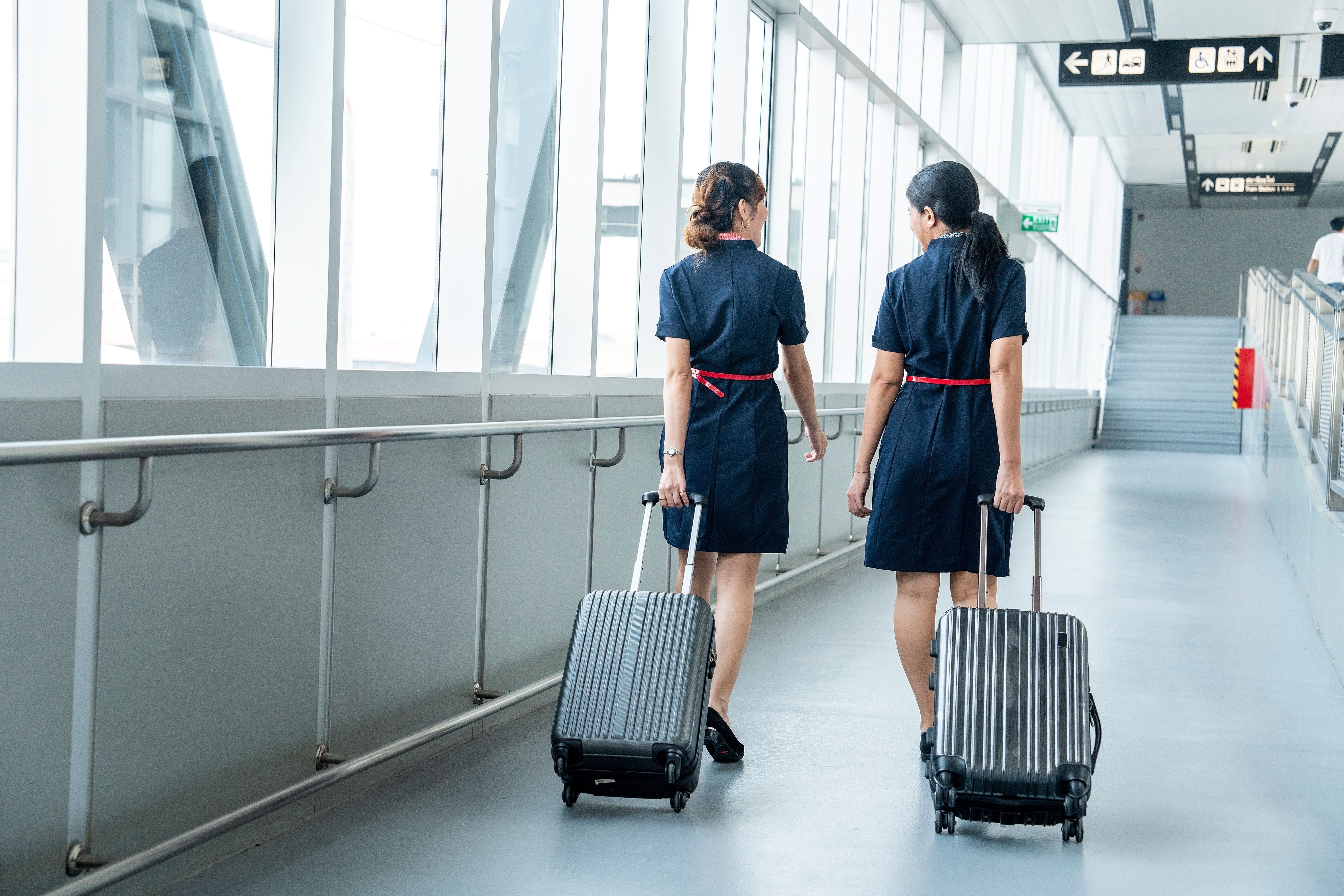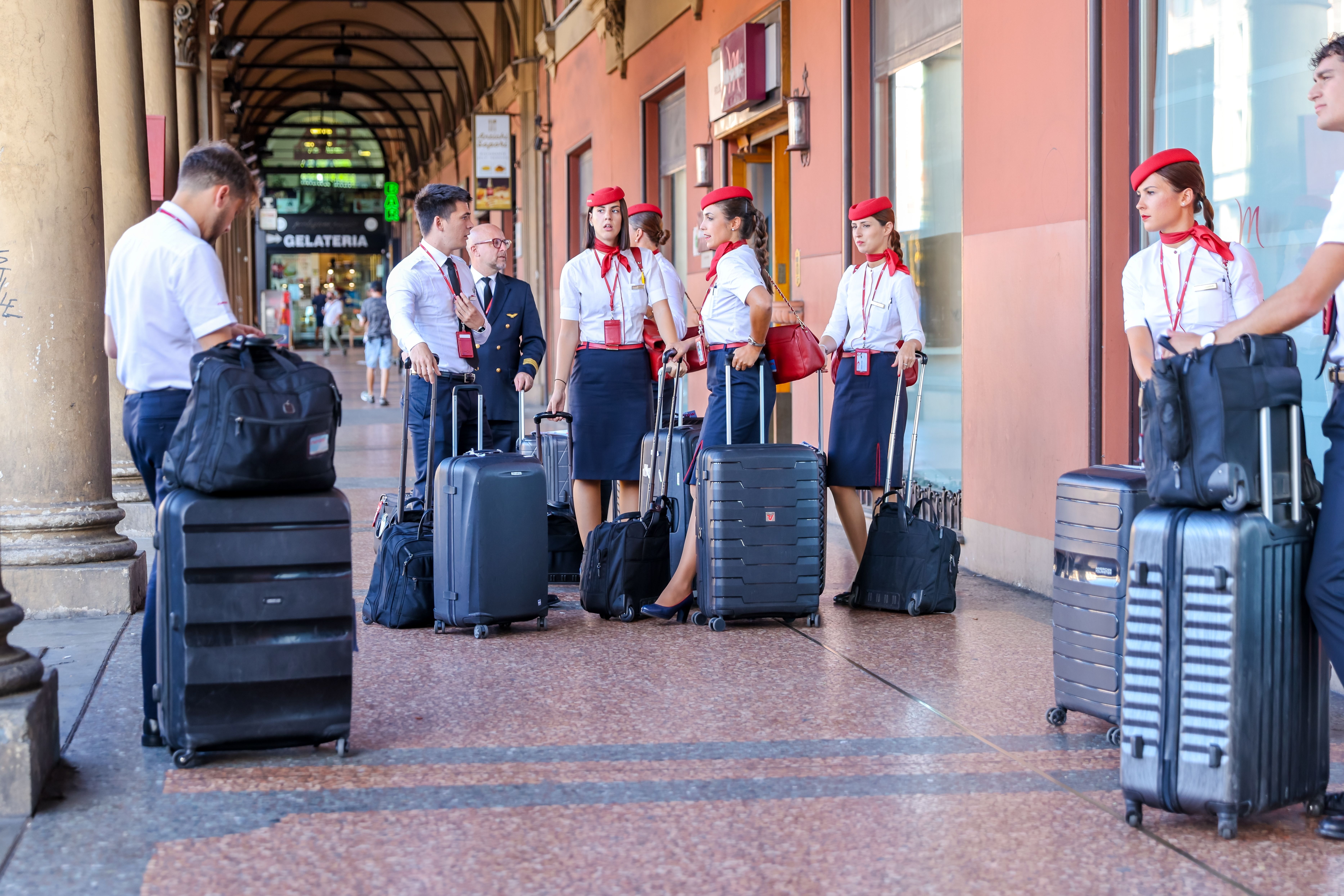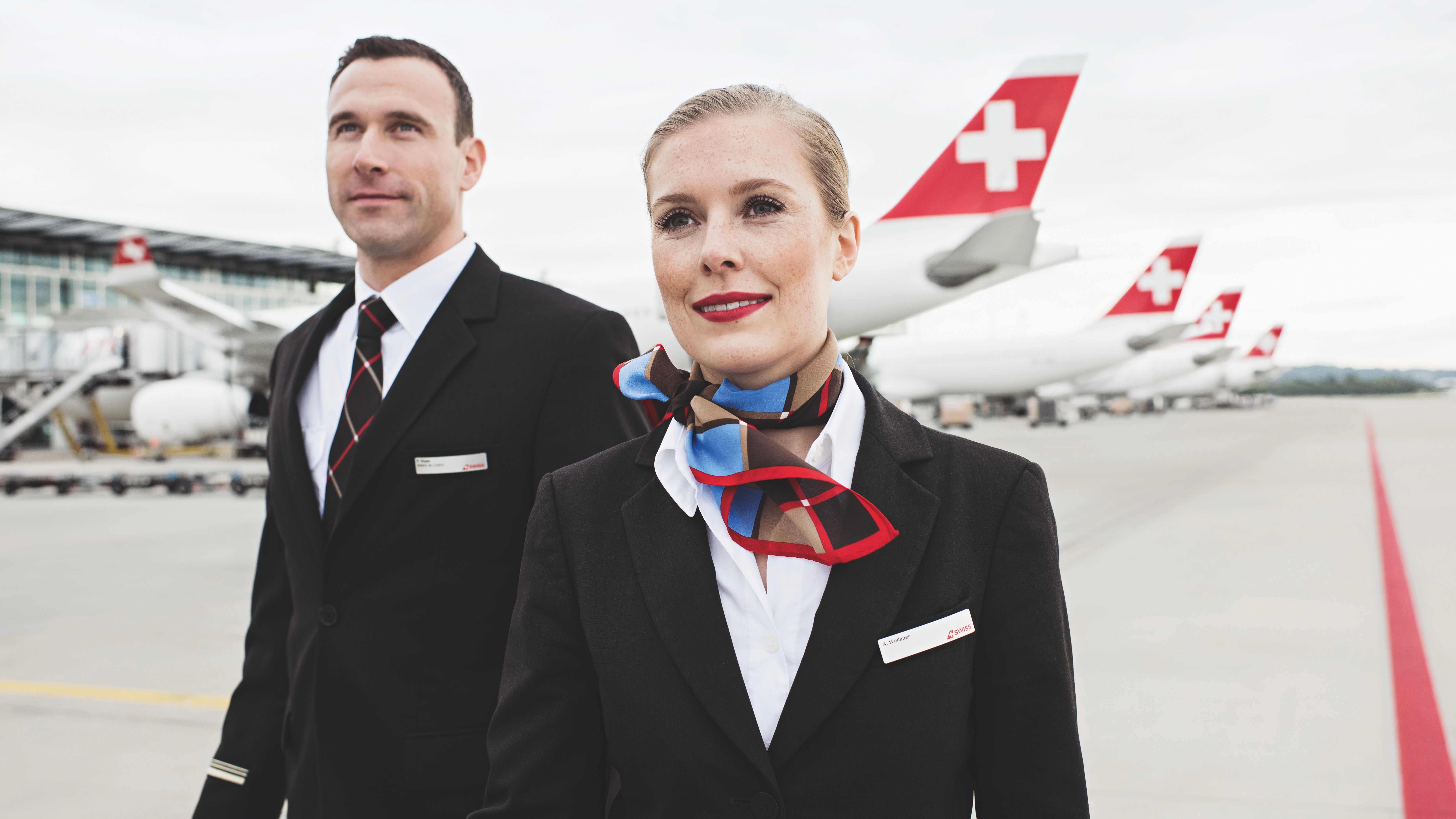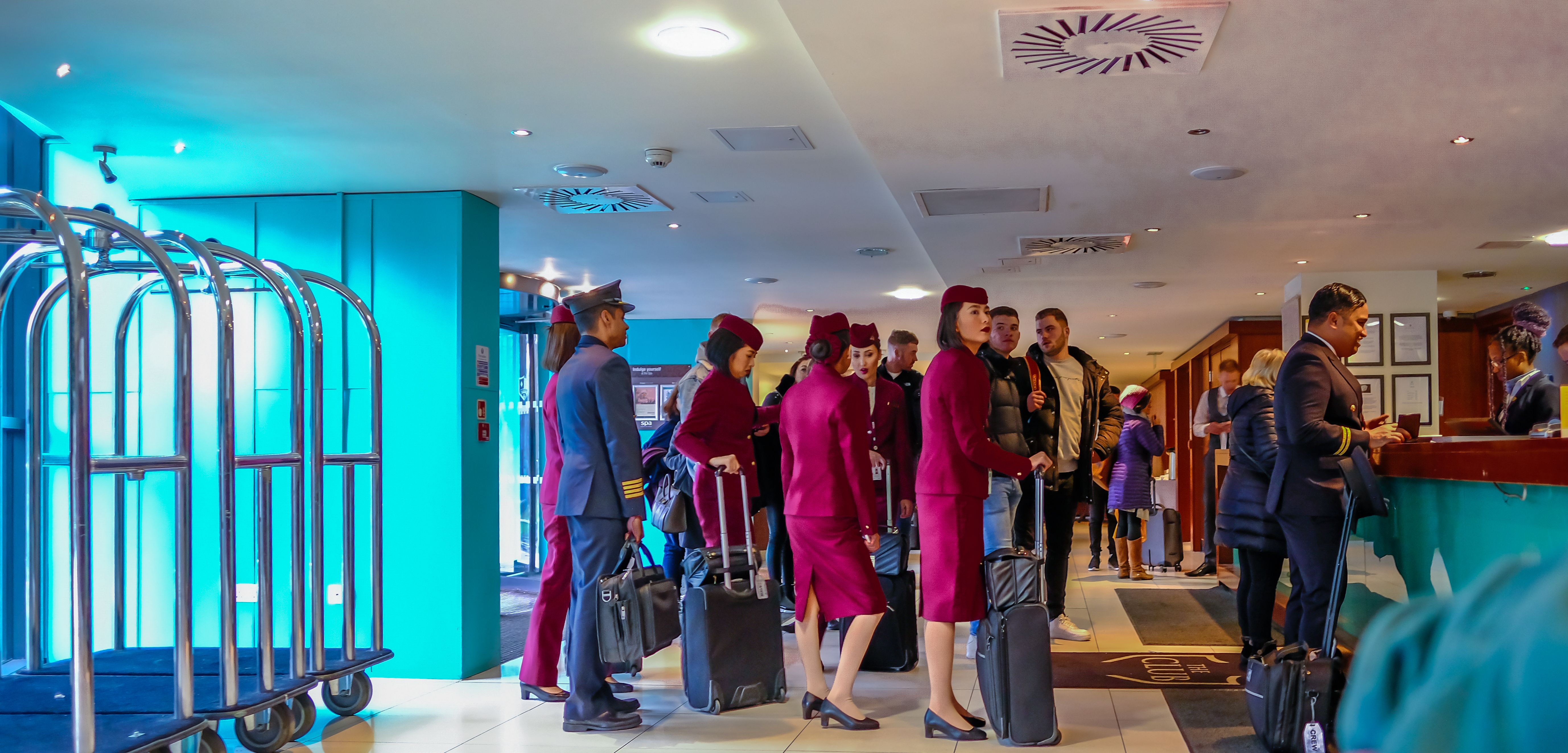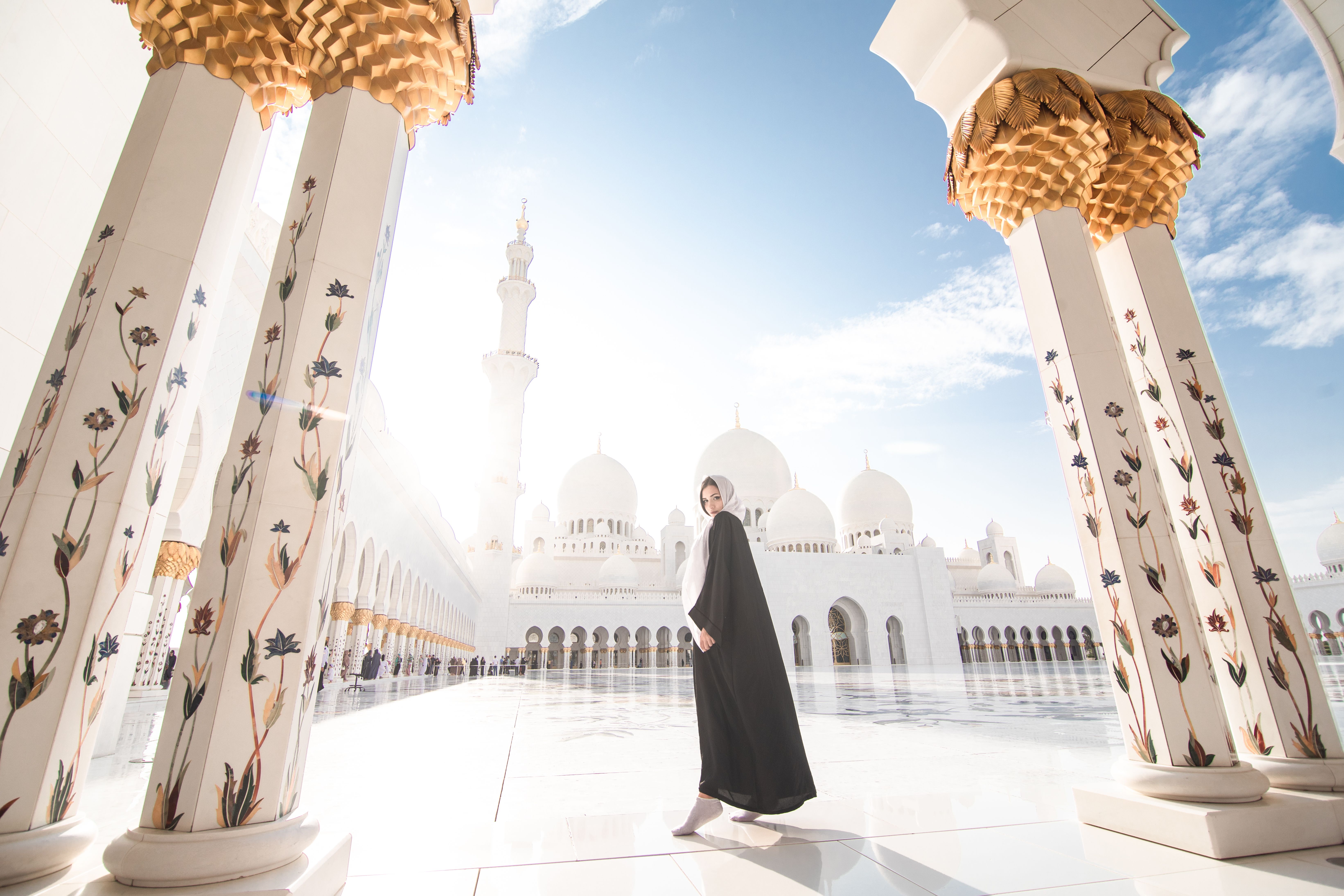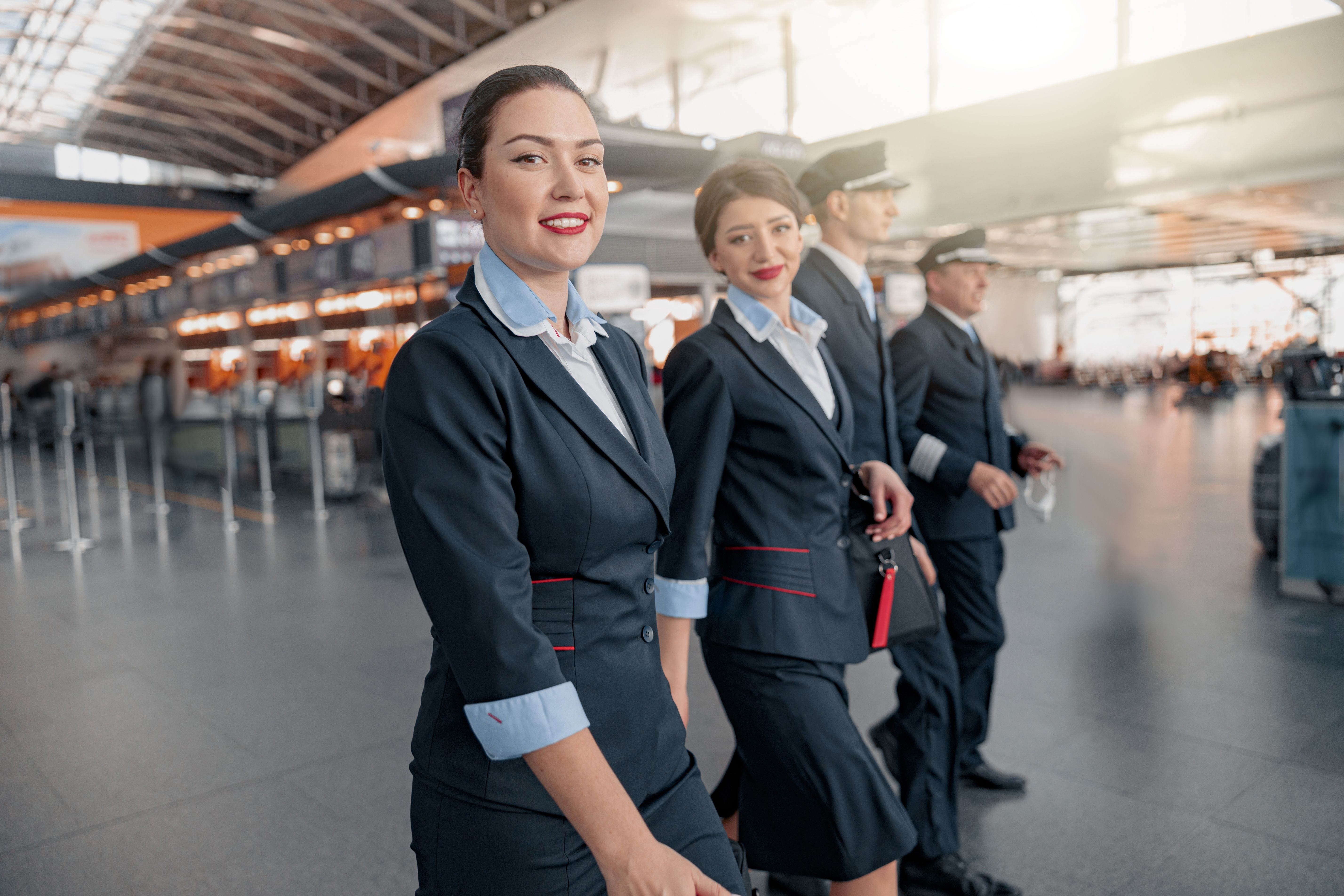Airlines in general, take good care of their crew when away from base, but the unexpected can happen and cabin crew can become targets when it comes to crime. Let’s take a look at how airlines keep their crew safe down route on layovers and what crew members can do to take care of themselves.
At the airport
Firstly, at the airport, the crew stays together as a group and follows the flight crew throughout the airport process. Not only does it look uniform, but no one is wandering off on their own. It’s always important to keep an eye on your own bags and suitcases for security purposes, partly because you don’t want anything stolen from your bag and you don’t want anyone to slip something inside your bag either. Some airports in Africa and India are more at risk for pickpockets, so it is always good to be aware.
Photo: Supavadee butradee | Shutterstock
A crew bus meets the crew outside the airport and these are usually contracted by the airline. From my own experience, once again, we always check that all the crew members’ bags are loaded. In some countries, we do have to close the curtains on the bus, so that we are not identified as airline crew, because we can be a target and there have been incidents where crew buses have been road blocked and the crew robbed. In more risky places, we have an armed guard onboard. Crew should not disclose to anyone which hotel they are staying at.
Photo: Todamo | Shutterstock
At the hotel
Most hotels are of 4 or 5-star standard and have the appropriate security in place. Some hotels will have armed guards and barbed-wired fences if there are risks foreseen. This is mostly in places like Africa, India and Pakistan. Some countries also have the crew bus scanned for explosive devices on arrival.
We share our room numbers so that all crew members know where everyone is, but we do this very discreetly of course, as you don’t want a stranger turning up on your door. Once at our rooms, we prop the door open with a suitcase, make sure that no one is behind us and check that no one is hiding inside the room.
Crew are mostly put in rooms near to each other but sometimes that just isn’t possible. Airline crew are not normally placed in ground floor rooms. We make sure that all locks are used inside the room and report anyone to reception, who uses a key card to try and access the room. We make sure that all windows are closed whilst sleeping. We use the safe, if necessary, or keep things like laptops or phones locked in our suitcases, out of sight.
Photo: SWISS
As crew, we should always take note of where the nearest fire exit is and any advice given regarding earthquakes and the safest place to go during such an event. If planning to go out during the trip, we research well, go out with fellow crew members wherever possible and also check with the hotel concierge, if there are any areas that should be avoided.
It is also worth noting that at the crew briefing prior to the trip, the senior crew member will also inform the crew of any potential hazards down route and even in some cities, may advise the crew not to leave the hotel. Some of these include:
- Kingston, Jamaica
- Lagos, Nigeria
- Johannesburg, South Africa
- Sao Paolo and Rio de Janeiro, Brazil
- Caracas, Venezuela
- Tel Aviv, Israel
- Lahore and Islamabad, Pakistan
- Mexico City, Mexico
Of course, rules can change at any time and the airline will inform the crew of any changes and then it is down to the individual if they decide to leave the hotel.
Photo: jean.cuomo | Shutterstock
Out and about
As crew, we are quite social, so we often go out for evening meals and drinks with our crew and this sometimes extends to day trips, shopping and sightseeing. It is always important to be aware of our surroundings and not take risks, if we feel like something is wrong, it probably is and we return to the hotel. Situational awareness is a key factor. If going out alone, we always tell someone else where we are going. At nighttime, we stick together and stay in well-lit areas.
At bars and restaurants, crew should always check the price list, as in some places they will overcharge you purposefully as you are not a local. They will say that they don’t have a price list. Drink spiking can still happen, so always watch your own drink or ask another crew member to. It is advisable that crew don’t draw attention to themselves, in any way. Crew have a tendency to always look out for each other, even off the aircraft.
Crew members take the hotel key card (with the address on it) with them as a reference point in case they need to get a taxi back. When showing the card, the room number should be covered. If in doubt and it is a new city, we ask our crew for advice. The chances are that someone has been there before and may just offer to show you around. Crew try to always go out with another crew member or two and stay together.
Crew have to be careful with taxi scams, although in most cities it is perfectly safe, some drivers do try and say that the meter is broken and then try to charge a ridiculous price. It is better to get an estimate before getting in the taxi. We also check the money that we are handing over, as some drivers will say that you gave them a smaller note than what you did. If a crew member loses their way, the best people to ask are usually security guards.
It may sound obvious, but it is better to not look like a tourist or wear anything expensive as it could make you a target. We always take minimal cash and some form of ID. We do try and avoid buying ‘real fake designer’ items if at all possible, as the sale of such items is illegal in many countries.
Crew as a target?
Crew can be a target, even if they are very discreet. Locals often know who crew are even when not in uniform. They tend to have an idea of when flights arrive and leave and often seeing a group of people of different ages and cultures but talking the same language, makes us stand out as crew. Especially when going out in the evening and you might have a mixed group of 12 or more crew.
This is certainly the case for restaurant and bar owners near the hotel. Even at a local shopping mall or market, the locals can often identify crew by something as subtle as that the females all wear the same earrings or wear the same nail polish. They will also notice small groups arrive at the same time of day on most days.
Photo: F8 studio | Shutterstock
Cultural awareness
Crew are generally very culturally aware but it is important to respect the local culture. When taking photos that include local people, we should always ask the person if it’s okay as in some countries it is offensive to do so. If we are visiting a mosque or temple, we follow the rules and be respectful, taking shoes off and keeping knees and shoulders covered as necessary.
In Saudi Arabia, women can wear the abaya and shayla although it is no longer 100% expected, it is respectful to do so. It is also important to remember that restaurants are often still segregated into family seating and bachelor seating. Sitting in the wrong area will cause offense.
In Muslim countries, you should not wear anything see-through or short and keep knees and shoulders covered, as again this is seen as offensive. Even though the city of Dubai is very liberal and forward thinking, there are still signs on shopping mall doors, reminding tourists to keep covered up and anyone can be asked to leave if not dressed appropriately.
Photo: Friends Stock | Shutterstock
In conclusion
Airlines take the latest security information available and ensure that crew are as safe as they can be, especially at the airport, the hotel and during transportation, and will take the necessary measures. At the crew briefing prior to the flight, any issues with safety or security at the destination will be flagged.
Saying that, it’s also a personal choice and safety in numbers is usually advised. Unfortunately, wherever you go around the world, there is always an inherent risk of something happening and sometimes unpleasant events still occur to cabin crew when downroute. It doesn’t mean to say that crew cannot go out and enjoy a new city but just need to keep their wits about them.
The more the airlines know the risks and take action when events occur and when the crew remains situationally aware and does not take unnecessary risks, the safer things will be. Actions might include armed guards on transport, moving hotels, or issuing safety notices to crew. Airlines will take advice on countries from government advice or specialist risk assessment companies such as Medaire.

